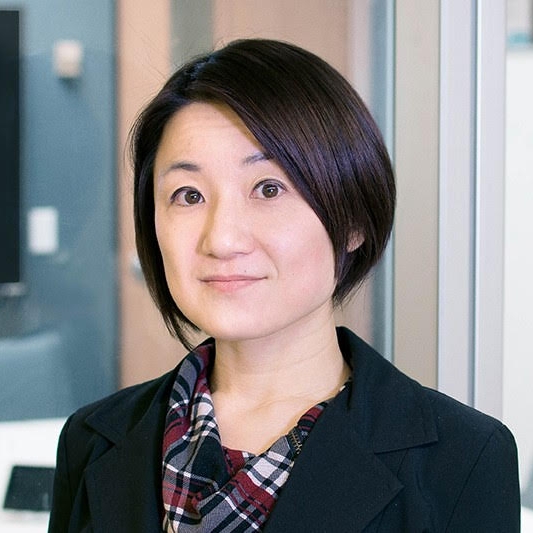*In April 2022, the university announced our new name of Toronto Metropolitan University, which will be implemented in a phased approach. Learn more about our next chapter.*
TMCIS Affiliate Highlight: Dr. Yukari Seko
No. 2024/03

Researcher: Dr. Yukari Seko
Position: Associate Professor, School of Professional Communication; Director, Centre for Studies in Food Security; Chair, Course-Based Research Ethics Committee, The Creative School
Academic Department: School of Professional Communication
Credentials: PhD
The Pitch: Tell us about your unique research approach
I am a critical communication scholar by training, and my research explores the potential role of communication in unpacking and disrupting dominant health paradigms. Much of my work takes a critical narrative approach to researching with historically marginalized communities, including disabled folks and racialized people whose voices are often engulfed by labels of deviance and abnormality. I conduct research with genuine curiosity and humility to learn from people, striving to share research findings with both participants and public audiences. I have found arts-informed methods particularly helpful in co-creating knowledge with participants and mobilizing that knowledge beyond the walls of academia.
What impact do you hope your research can make in the community?
At the heart of my research lies the well-known slogan, “Nothing About Us Without Us.” If we, as researchers, wish to rectify health inequities and bring about positive changes to people’s health experiences, we must find ways to partner with individuals with lived experiences, their allies, frontline service providers, knowledge users, policymakers, and other stakeholders. My program of research, therefore, aims to create spaces for interdisciplinary dialogues where a critical health communication lens can be meaningfully applied to health research, policies, and service delivery. In the spirit of viewing research as dialogue or polylogue, I hope my work contributes to the co-creation of knowledge that is meaningful to the people and communities I engage with.
What’s one research project you’d encourage others to read and why?
Check out our Lunchbox Shaming (external link) study! Using arts-informed interview techniques, we explored food shaming experiences faced by children of Asian descent in Canadian schools (Seko et al., 2023). Many young participants reported experiencing subtle to overt forms of food shaming when bringing food from their family’s culture to school. These negative experiences during school lunchtime profoundly impacted their relationships with their “home” food and their cultural identity. However, some participants shared positive experiences that deepened their connection to their cultural heritage. As part of our knowledge mobilization efforts, we created an animation video titled It’s okay to be different (external link) , incorporating quotes from the interviews.
What’s next for your research?
Shifting my focus from childhood to the other end of the life spectrum, my current research explores the intersections of aging, migration, and food. Our recent project, funded by the SSHRC Partnership Engage Grant, explored the experiences of Japanese Canadian seniors (70+ years) who participated in a community dining program featuring Japanese meals. Through in-depth interviews, I learned about the crucial role that culturally appropriate food plays in healthy aging in place. Our team is currently studying Meals on Wheels (MoW) programs that deliver meals to community-dwelling seniors. I am particularly interested in the extent to which existing MoW programs across Ontario provide culturally appropriate meals to their clients and how “culturally appropriateness” is defined by service users and providers. I will continue advancing research on racialized people’s food experiences, with a focus on aging and end-of-life care for first-generation immigrants in the Greater Toronto Area (GTA).
References
Seko, Y., Juando-Prats, C., Wong, V., Rahouma, L., Yu, J., & Henry-Noel, N. (2023). Lunchbox shaming: Recollections of school lunchtime by young Canadians of Asian descent. Food, Culture & Society, 27(2), 382-400. (Open Access) https://www.tandfonline.com/doi/full/10.1080/15528014.2023.2289238 (external link)
TMCIS occupies space in the traditional and unceded territory of nations including the Anishnaabeg, the Mississaugas of the Credit, the Chippewa, the Haudenosaunee, and the Wendat peoples, and territory which is also now home to many diverse First Nations, Inuit, and Métis peoples. This territory is covered by Treaty 13 signed with the Mississaugas of the Credit, as well as the Williams Treaties signed with multiple Mississaugas.